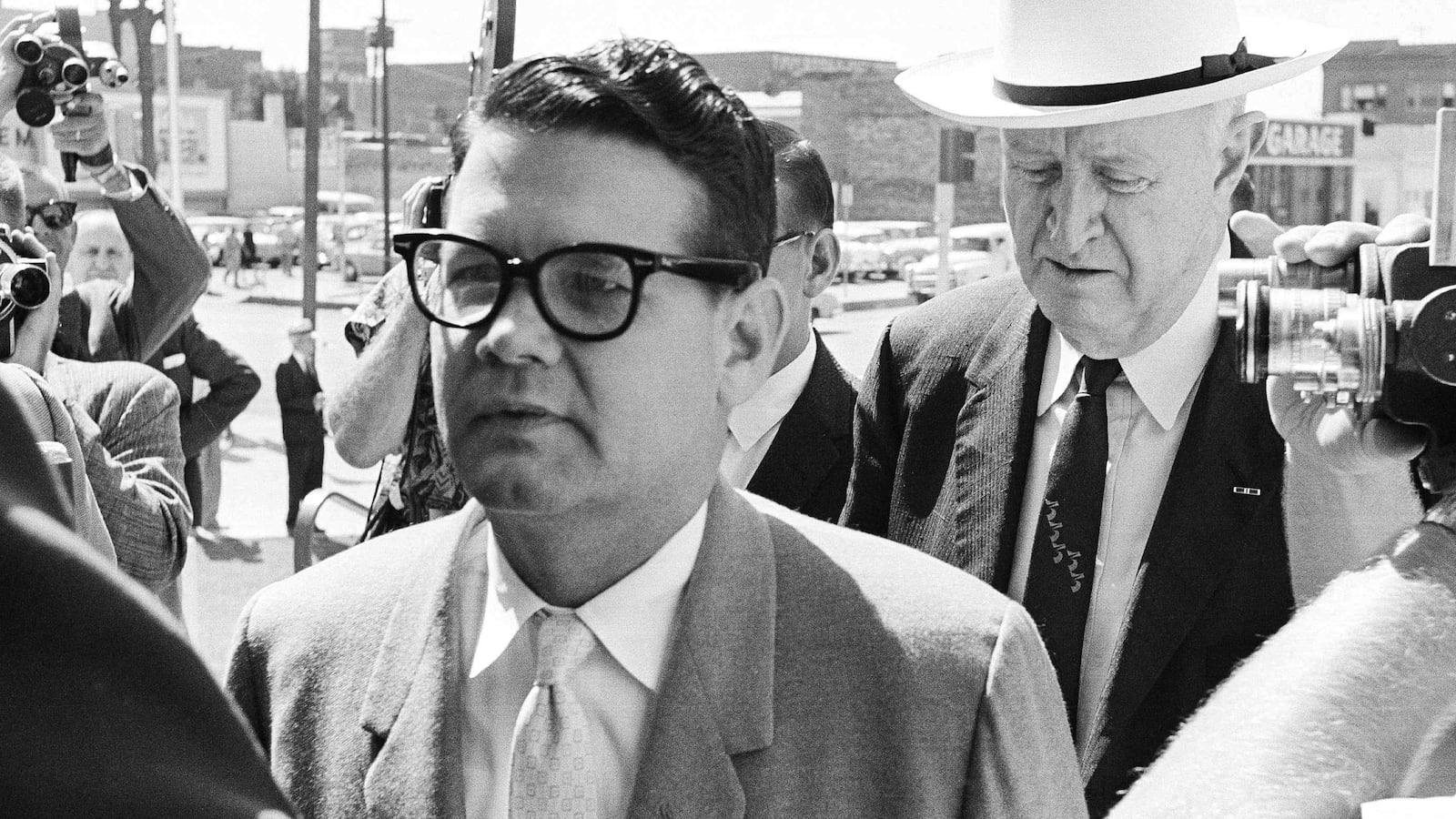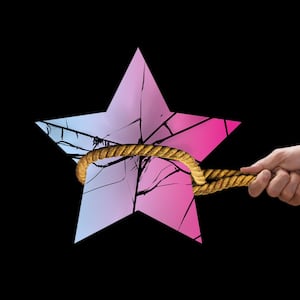“Notorious Texas con man.” “Well-connected wheeler-dealer.” “Flamboyant Texas swindler.” Author of a “Texas-sized legacy of scandals.” These were the headlines that graced newspapers from West Coast to East Coast in 2013 when Billie Sol Estes died at the age of 88 in his home in Granbury, Texas.
It was just over 51 years since the Texan had embarked on a more notorious tour across the country’s front pages, but that time had done nothing to soften his reputation.
Where there are people transacting business—humans with all their foibles and vices—there will be bad behavior. Ponzis and pyramids and a rainbow of other fraudulent schemes. But Billie Sol, as he was commonly called, added a little extra flair to his multi-million-dollar fraud that came to light in the early 1960s. He not only bilked investors out of their hard-earned cash, but he did so in such a charismatic, well-connected, and unapologetic way that it infected politicians and presidents and resulted in several resignations and seven suspicious deaths.
As the Philadelphia Inquirer’s front page blared in 2013, Billie Sol was the “King of Con Men” and, as was only fitting for a man who embraced the most colorful characteristics of his home state, he perpetrated a fraud unlike any that had come before.
Billie Sol was born into humble circumstances in the vast plains of the Texas Panhandle, where the land never seems to fully disappear into the horizon. Driving through the area today, the most noticeable crop is the army of windmills that dot the fields, but as the mid-century approached, cotton was one of the main agricultural draws.
According to Doug J. Swanson in The Cult of Glory: The Bold and Brutal History of the Texas Rangers, Billie Sol’s family was so hard up when he was born, that they had to sell some of their dogs to pay the doctor. “There is nowhere to go but up when you are traded for dogs,” Billie Sol was known to quip.
But these circumstances fueled the young boy who had an eye for business and was hell bent on bettering his circumstances. According to a 1989 feature in Texas Monthly, as a 7-year-old he turned a single lamb he was given for Christmas into a mini-herd and a wool business. While The New York Times contends this gift occurred when he was 13, what is certain is that it was just the first of his childhood businesses.
While born poor in resources, Billie Sol was rich in confidence and in the belief that he was meant for bigger and better things. It was this brashness that would lead him into trouble.
The first of his many interactions with the White House, and the first of his businesses that edged into the gray area of shady, occurred at 15 when a letter from President Roosevelt gave Billie Sol a new idea. The area had been mired in drought and the young man had taken it upon himself to reach out to the president to ask for help.
While Roosevelt surely read into the letter he received as a struggling Good Samaritan interested in helping his neighbors, Billie Sol did something a little different with the information the president sent back about the existence of a government grain program to help those farmers in need. He secured a loan that far outstripped his means, bought up a bunch of the government’s low-priced grain, and then sold it for a higher price. Thankfully for him and the bank who had issued a loan, the scheme was a huge success.
Billie Sol’s business practices may have been risky from nearly the start, but there is no doubt that he was a hard worker and that his imaginative ideas paid off… at least for a time. By his mid-twenties, the Texan had risen far above his humble beginnings. By his mid-thirties and with business headquarters now in West Texas, he claimed to be worth a whopping $400 million.
As anyone will know who has stepped foot in the state of Texas or listened to any number of the podcasts now available that gleefully explore the goings-on of the state, there is no shortage of characters there, many of whom are more intriguing thanks to being a tumbleweed of contradictions. (Editor’s note: This author hails from and currently resides in the state.) Billie Sol exemplified this trait.
While he was conducting business that often had more than a tough of unscrupulousness, he was also an upstanding member of his community. From birth, he was a devoted follower of the Church of Christ and embraced the religion’s rigid views on drinking, dancing, and fraternizing between sexes at pool parties. (No, no, and no!) He was known to take to the pulpit and preach every so often, and he cultivated all the right political contacts. He rode his bike to work and took business lunches at Dairy Queen.
In a picture printed in Life Magazine in 1962, Billie Sol looks like your typical middle age businessman—a little doughy, dressed in a frumpy suit, and frankly, kind of boring. But woe to the investor who was seduced by this first impression of mediocrity.
Billie Sol also liked to enjoy the new riches of his labor. He owned a plane and a limo, which Swanson says he would take to the grocery store. His home was outlandishly gauche (think waterfalls and expensive imported flora and fauna, including a spider monkey). According to Texas Monthly, his lawyer would later describe him as like “an unmade bed” and his daughter said he was a “hopeless showboater” who lived in a “wacky world.” This is the Billie Sol who would emerge as his sins came to light.
Estes Enterprises had no shortage of fraudulent schemes going on, but the one that brought Billie Sol down was a business deal involving fertilizer tanks. Mortgaging and leasing these ordinary agricultural products was common in farming country. What was not so common was Billie Sol’s business model, in which the fertilizer tanks in question didn’t actually exist. Following a rigorous investigation by the local paper, the feds stepped in.
The investigation that followed in the early 1960s caused a stir that went well beyond that of the schadenfreude our country loves to indulge in when any rich or elite person is brought down by their own hubris. Billie Sol had enjoyed some political clout over the course of his career, though for years politicians including several presidents would argue that his claim to an intimate connection was all talk.
While his office was lined with signed photos from everyone from President Kennedy to President Truman, it seems more likely that his real connections were with local Texas politicians as well as lower-level politicos like the Assistant Secretary of Labor and the Assistant Agricultural Secretary, who both lost their jobs in the wake of the scandal. Billie Sol was not above bribery and as he was facing justice, he loudly broadcast often outlandish claims about whom he paid off, and other details of his affairs.
In the wake of the scandal, members of the two political parties began a crazed round of finger pointing as to who was responsible for allowing Billie Sol’s corruption, which extended far outside of Texas, to fester. Democrats blamed the Republicans under Eisenhower, the administration in power when the corrupting roots of Billie Sol’s business were planted. Republicans blamed the current administration which, they said, had allowed the fraud to flourish. Even President Kennedy felt the need to weigh in, issuing a statement that, “This government is staying right on Mr. Estes’s tail.”
While the politicians were playing “not it,” the investigation into Billie Sol’s business continued. And that’s when things began to get really weird.
Suddenly, men connected with the case began to show up dead, often under bizarre circumstances. Three were killed in accidents, three in what looked like suicides. The most outrageous of the deaths was that of Henry Marshall, an employee of the agricultural department who was assigned to the case. Marshall was found dead with five gunshot wounds to his chest, wounds on his head, and carbon monoxide in his body. Insanely, his death was originally ruled a suicide.
As if that wasn’t weird enough, when Billie Sol finally went before a grand jury after Marshall’s death was finally corrected to murder, he had a tall tale to tell. He claimed that he was not responsible for the man’s murder. Instead, that blame sat with Vice President Lyndon B. Johnson, who, Billie Sol contended, ordered Marshall’s murder in order to cover up his own connection to Estes Enterprises and the bribes he had accepted. For years, this accusation would dog LBJ’s legacy, though neither at the time nor after much historical examination has there ever been any evidence that LBJ had any connection with the con man.
Billie Sol may have known how to talk a big game and spin an outlandish tale, but his crimes finally caught up with him. He would only serve six years of his sentence thanks in part to some legal technicalities about the media coverage of the trial, but the man was who he was, and shortly after he got out of jail, he was sent back on a new charge of tax fraud. Billie was released in the early 1980s after serving four years for that offense, and was immediately the subject of new investigations.
But neither a decade in jail, nor never-ending investigations, nor a permanently tarnished reputation could cow the Texas swindler. He continued to be his flamboyant self, talking about his exploits, weaving his stories… and sliding back into some of the business practices that got him in trouble in the first place.
When he was released from prison for the second time in 1983, his daughter brought him into her T-shirt business. While good-natured about the affair that had dogged her life, Pam knew exactly who her father was and made it clear that he hadn’t changed one bit.
As she told Texas Monthly, “I have to watch him. If he tells me he’s sold 200 T-shirts, I know it’s more like 20. Once a con man, always a con man.”







